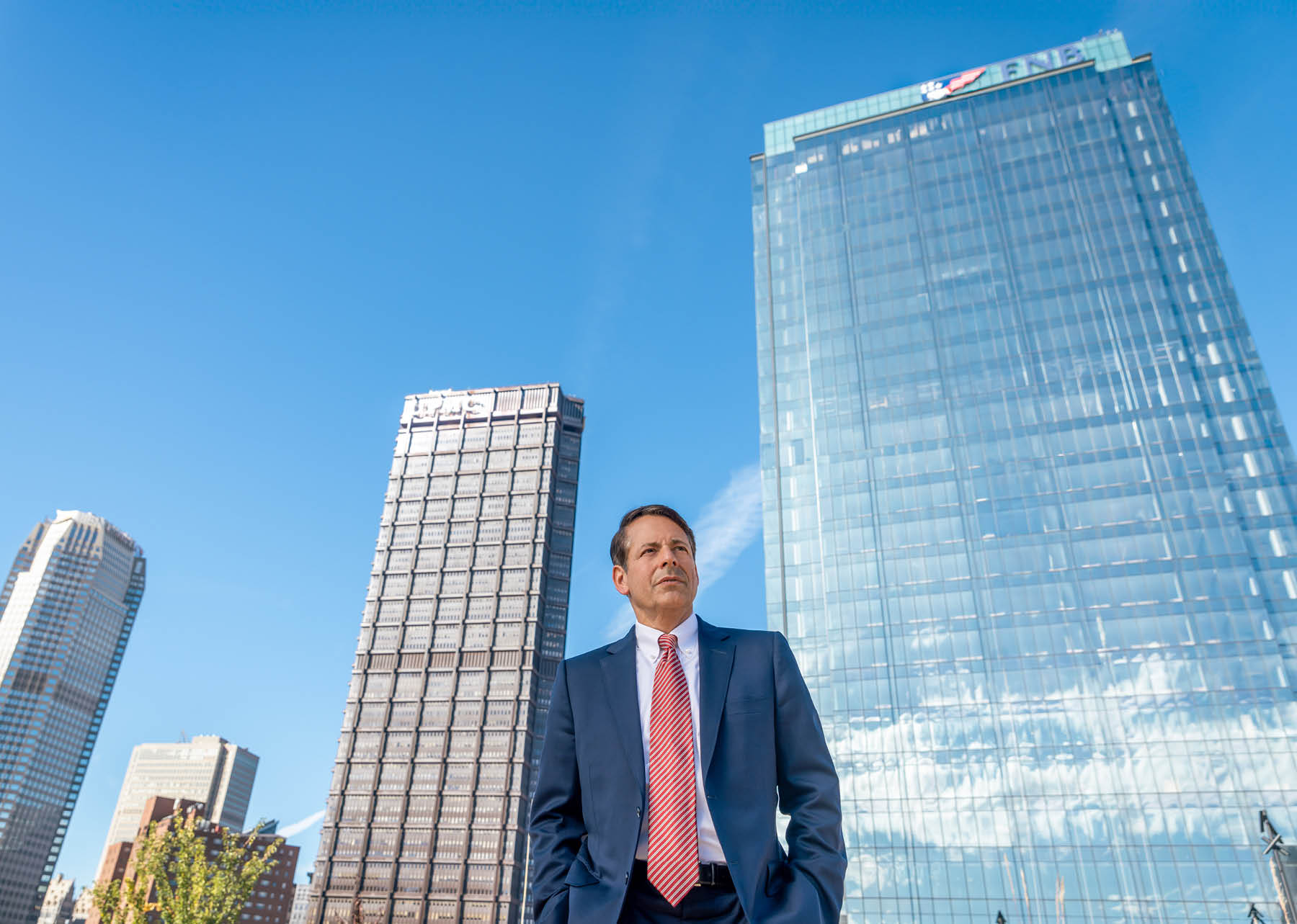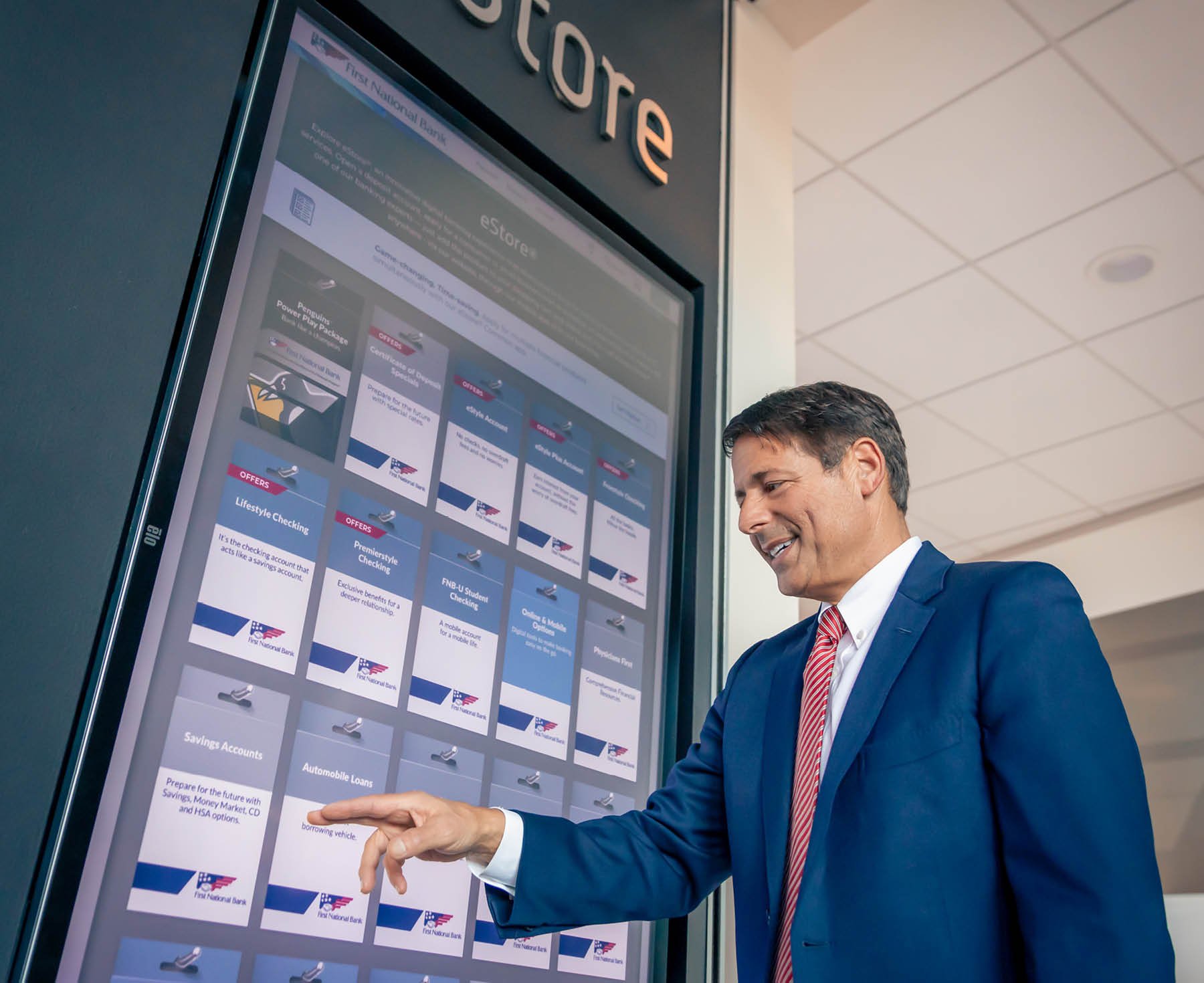As Chairman, President and CEO, Vincent J Delie Jr hasn’t just transformed F.N.B. Corporation and its banking subsidiary First National Bank from a rural institution into one of the 50 largest bank holding companies in the United States. He’s also championed reinvestment in his hometown of Pittsburgh and has just been honored with the CEO of the Year award.
Between the 1920s and 1950s, Pittsburgh’s Hill District was a cultural hub, where the notes of jazz bands mingled in the air with excited chatter. The vibrant neighborhood brought together African American, Italian American and other eastern European immigrant communities. It was, according to Jamaican American writer and poet Claude McKay, ‘the crossroads of the world’.
By the end of the 20th century, it was equally known as a casualty of failed urban renewal.
Following World War II, eminent domain was invoked, and thousands of families and hundreds of businesses were displaced.
“Their houses were taken and then they just leveled everything,” says Vincent J Delie Jr, Chairman, President and CEO of F.N.B. Corporation (NYSE: FNB).
If that wasn’t enough, a new highway effectively cut the neighborhood off from the rest of the city.
The Civic Arena, the much-vaunted star of the urban renewal planned for The Hill – and the reason eminent domain was invoked – opened in 1961. The home of the Pittsburgh Civic Light Opera, it was, for the era, the definition of innovative, with its retractable dome roof.
Unfortunately, the acoustics weren’t up to scratch and, despite all the disruption to build it, the opera abandoned the facility after two years. The venue sat empty until the Pittsburgh Penguins moved there in 1967.
In 2012, the arena was demolished. The ice hockey team tried to develop the site, but people stayed away.

Delie, who grew up in Pittsburgh’s inner city, had witnessed the devastation caused by the steel industry’s collapse in the 1970s. He saw how the loss of jobs and economic neglect brought his community to its knees. When the Penguins presented an opportunity for F.N.B. Corporation to build its new headquarters where the Civic Arena once stood, he knew it was a chance to kick-start a neighborhood that had been, as he puts it, “devoid of investment for a long time”.
He also recognized the immense potential it created for his own company, which needed space to accommodate its dramatic growth. With a new building, he could provide his employee base with state-of-the-art space while cultivating efficiency and productivity that would add shareholder value. It was, in his words, a “win–win–win.”
Delie was a driving force behind a US$300 million investment in F.N.B. Corporation’s building, a project that reinvigorated a broader US$1 billion development designed to revitalize the lower Hill District and reconnect it to Pittsburgh’s downtown. Without F.N.B. Corporation’s commitment, it may never have happened.
Getting it done
On 25 November 2024, Delie and approximately 800 colleagues throughout the city will officially move into FNB Financial Center, nearly five years after the project was announced. It was a triumphant moment, marking the completion of one of the only new towers erected in Pittsburgh during the past 40 years – one built despite the significant challenges presented by the COVID-19 pandemic.
“We did it, we got it done,” he says with a smile.
To follow the progress of the construction, all he needed to do was swivel around his office chair to look out the window and across the Allegheny River. Every day, Delie watched the building rise as a symbol of new beginnings for a community that has suffered at the hands of gentrification.
“Our building creates wealth for the community at large,” he says. “We wanted to make sure that residents and businesses in the Hill District could take advantage of its economic benefits.”
To ensure the tower acted on its promise, Delie and the development team laid out a community impact strategy that included substantial commitments to engage minority-owned (30 percent) and women-owned (15 percent) businesses in construction. In addition to investing in funds that contribute equity to minority-owned firms, F.N.B. Corporation also created a loan program to provide local contractors with the resources necessary to participate in the development.
To date, F.N.B. Corporation has committed more than US$200 million in loans, investments and grants to directly benefit the Hill District, contributing to low-income and minority home ownership, business formation and development, financial literacy and wealth building.
To be able to leave an imprint on the skyline he has watched for his entire life was a great driver for Delie.
“As a banker, it’s really difficult to point to something tangible and say that you made it,” he says. “It is meaningful to see the results of our hard work.”
High impact
“Throughout my career, I’ve been more excited about the outcome of what I have done rather than the actual work I did,” Delie says. “I would drive around with my kids and be able to say that I financed that company or that project.”
Lined up behind his desk are mementos of his contributions and partnerships, including a Pittsburgh Pirates MLB batting helmet, a Pittsburgh Steelers NFL helmet, the game helmet of Penguin’s star Evgeni Malkin and the helmet of Pennsylvania NASCAR driver Kris Wright. But with FNB Financial Center, he can point to the physical incarnation of what may be his greatest professional impact – the growth of his company.
“When I first started at F.N.B., there were fewer than a dozen employees on the North Shore [of Pittsburgh],” he explains. “Today there are more than 800 people. We ran out of space a long time ago.”
The F.N.B. Corporation team has spent the past few years scattered across multiple buildings on Pittsburgh’s North Shore while it waited for its new headquarters to come to life, and there is a lot of excitement in a city that is crying out for growth.
“Within the last decade, we’ve lost more than 40,000 jobs in the region,” he explains.
“The population’s not growing here. But this company has grown organically and through acquisition. It is rewarding to know that our success has positively impacted Pittsburgh.”
Organic growth and acquisitions
When Delie joined F.N.B. Corporation in 2005 as President and CEO for the Pittsburgh Region, the bank was largely a rural institution focused on western Pennsylvania and northeastern Ohio, with assets under US$6 billion. It held just over US$908 million in deposits in the Pittsburgh Metropolitan Statistical Area (MSA).
As he approaches his 20th year with the institution, it is the picture of robust health – one of the 50 largest bank holding companies based in the United States.
With nearly US$48 billion in assets, F.N.B. Corporation employs about 4,200 people and operates a network of approximately 350 branches that extend across seven states and Washington, DC. In 2023, S&P Global Market Intelligence ranked it among the top 50 best-performing United States banks based on financial metrics. The company maintains a top five deposit share position in nearly 50 percent of the MSAs it serves, including a number two traditional retail deposit share rank in Pittsburgh, where today it has nearly US$11 billion in deposits.
“We’ve gone through quite a bit since the financial crisis,” Delie reflects, adding that the COVID-19 pandemic and, more recently, the bond market crash and liquidity crisis were also difficult periods to navigate.

The data hub
Delie has also driven growth through innovation.
“Our focus from a technology perspective has been to create systems or environments where our employees can achieve great success with information at their fingertips,” he says. “The end result is a more seamless customer experience.”
F.N.B. Corporation has built what he calls a “data hub”, to allow the company to process billions of records drawn from its various systems.
“Banks are fairly complicated in terms of technology, so creating a way to bring all the information together and present it back in a way that’s actionable was critical,” he says. “We have more data than most technology companies.”
And the bank is fiercely protecting it.
“We’re using the information to make sure that our customers are being served appropriately and that we’re making the appropriate decisions,” he says.
The insights gleaned from data analysis enable the company to generate enhanced leads, provide tailored product recommendations, and facilitate more informed and productive client interactions.
The data hub has also led to the evolution of two of the most significant innovations under Delie’s leadership – the eStore® and the broader Click-to-Bricks strategy into which it fits.
eStore
The eStore is F.N.B. Corporation’s digital store where customers can purchase up to 30 consumer products and services simultaneously with one application and one set of data fields.
Delie compares it to Amazon, in that all the products are listed on the website and customers, with a click, can put them in a shopping cart. A tool called ‘Help Me Decide’ lives up to its name, and customers can watch video content about various products and services before proceeding to the checkout.
With eStore, F.N.B. Corporation is, according to Delie, one of the only financial institutions in the United States to offer such a comprehensive digital tool.
“I don’t know many banks where you can go and apply for 30 products simultaneously with one application,” he says.

The journey to success
Earlier in his career, Delie made a reputation for himself as a formidable dealmaker.
“I was always able to win business because I could get transactions done for my clients. I put together many large deals that have played a role in shaping our city,” he says.
Joining F.N.B. Corporation presented a new way to give back to his hometown. There is, he adds, a large dose of entrepreneurial spirit that runs through his veins.
“I didn’t just land here from an Ivy League school and it was already a US$50 billion bank,” he says. “No, we had to build it from the ground up.”
It wasn’t easy, but by surrounding himself with the best people (including some Ivy Leaguers, he says with a laugh), F.N.B. Corporation has grown in the right direction.
“No matter who you are or what company you’re running, there are some basic tenets that apply to everyone,” he says. “And that’s how you treat your employees – stay true to your values and care about the communities in which you operate. That’s what our culture is all about.”











